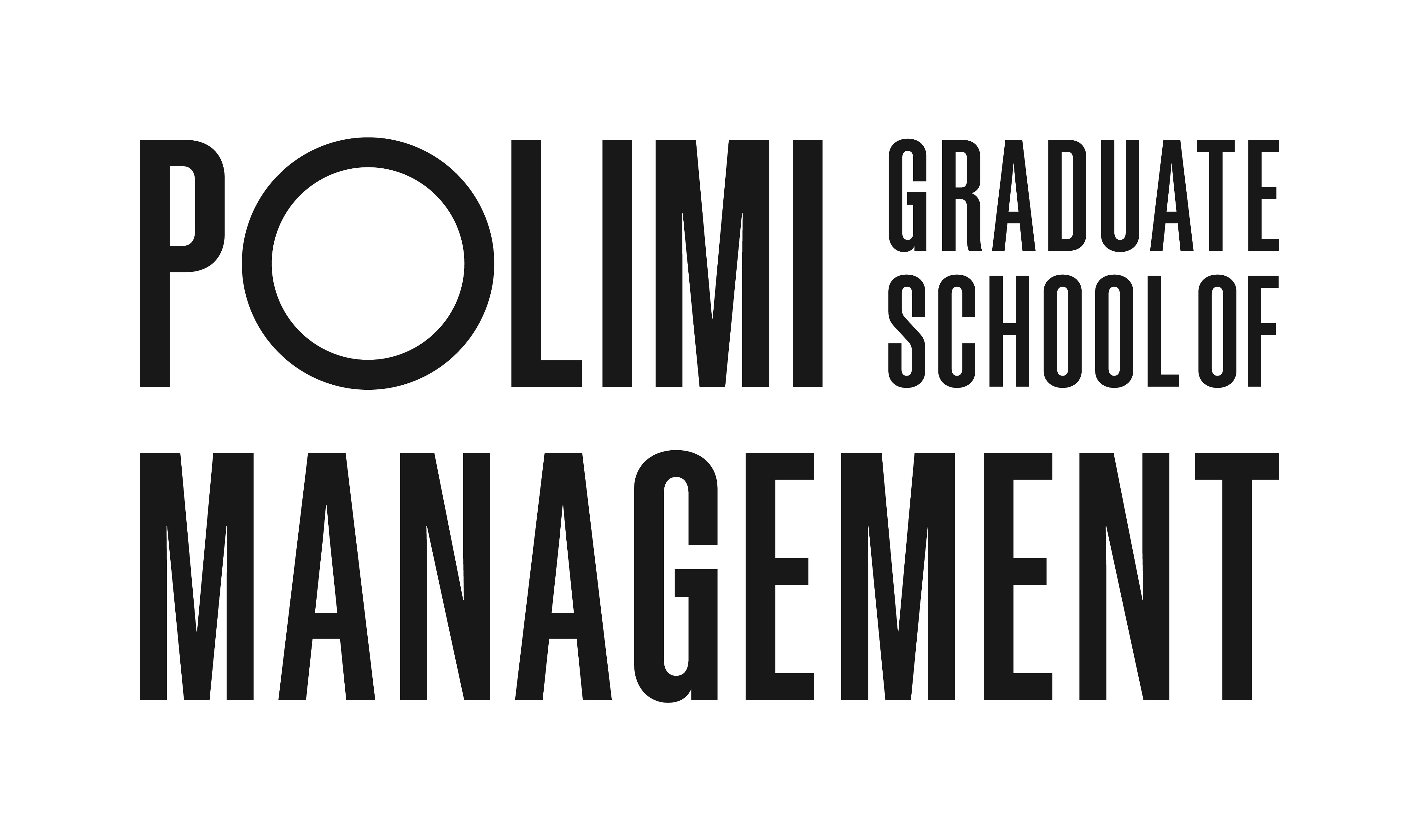

POLIMI Graduate School of Management

Lombardy, Italy
August 2020
Higher education
Service with Minor Environmental Footprint
Italy
At POLIMI Graduate School of Management we create meaningful paths for future business leaders and the businesses they will lead, guided by the over-arching belief that we have a crucial role to play in shaping a better world for all. Based in Milan, Italy’s main business centre, our school was created over 40 years ago as MIP Politecnico di Milano and today it is a not-for-profit Consortia Limited Company composed of the University and a group of leading Italian and multinational companies. We offer more than 40 masters degrees, including MBA and EMBA, and a catalogue of over 200 open programmes, along with customised training for companies. We continue to innovate and our digital learning systems allow us to seamlessly integrate personalized and continuous learning experiences into our programmes and have placed us amongst the top-ranked Online MBA rankings globally. As part of the School of Management of Politecnico di Milano, we are among the few “Triple Crown” accredited schools across the world. With over 15,000 alumni and 3,000 students every year we are an innovative and entrepreneurial community made up of diverse people and partners. We see the power of relationships as a constant source of enrichment, innovation and inspiration, personal and professional.
Overall B Impact Score
Governance 7.7
Governance evaluates a company's overall mission, engagement around its social/environmental impact, ethics, and transparency. This section also evaluates the ability of a company to protect their mission and formally consider stakeholders in decision making through their corporate structure (e.g. benefit corporation) or corporate governing documents.
What is this? A company with an Impact Business Model is intentionally designed to create a specific positive outcome for one of its stakeholders - such as workers, community, environment, or customers.
Workers 26.9
Workers evaluates a company’s contributions to its employees’ financial security, health & safety, wellness, career development, and engagement & satisfaction. In addition, this section recognizes business models designed to benefit workers, such as companies that are at least 40% owned by non-executive employees and those that have workforce development programs to support individuals with barriers to employment.
Community 31.2
Community evaluates a company’s engagement with and impact on the communities in which it operates, hires from, and sources from. Topics include diversity, equity & inclusion, economic impact, civic engagement, charitable giving, and supply chain management. In addition, this section recognizes business models that are designed to address specific community-oriented problems, such as poverty alleviation through fair trade sourcing or distribution via microenterprises, producer cooperative models, locally focused economic development, and formal charitable giving commitments.
What is this? A company with an Impact Business Model is intentionally designed to create a specific positive outcome for one of its stakeholders - such as workers, community, environment, or customers.
Environment 3.7
Environment evaluates a company’s overall environmental management practices as well as its impact on the air, climate, water, land, and biodiversity. This includes the direct impact of a company’s operations and, when applicable its supply chain and distribution channels. This section also recognizes companies with environmentally innovative production processes and those that sell products or services that have a positive environmental impact. Some examples might include products and services that create renewable energy, reduce consumption or waste, conserve land or wildlife, provide less toxic alternatives to the market, or educate people about environmental problems.
Customers 22.9
Customers evaluates a company’s stewardship of its customers through the quality of its products and services, ethical marketing, data privacy and security, and feedback channels. In addition, this section recognizes products or services that are designed to address a particular social problem for or through its customers, such as health or educational products, arts & media products, serving underserved customers/clients, and services that improve the social impact of other businesses or organizations.
What is this? A company with an Impact Business Model is intentionally designed to create a specific positive outcome for one of its stakeholders - such as workers, community, environment, or customers.